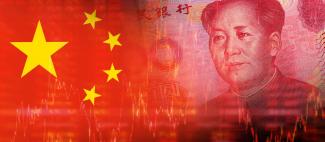Event

The Trump administration has taken U.S. foreign economic policy in directions not seen since the establishment of the postwar liberal regime for international trade. The US has been unprecedentedly critical of the WTO, sought to replace NAFTA with a new US-Mexico-Canada agreement, and cast the EU as a foe in trade relations while halting progress on the Trans-Atlantic Trade and Investment Partnership. But the most significant trade moves have targeted China and focused on the Asia-Pacific: opting out of the Trans-Pacific Partnership, criticizing Chinese policies and practices as unfair on issues ranging across market access, currency manipulation, coerced or illicit intellectual property transfers, industrial policy, import duties, government subsidies, and Chinese firms’ violations of US sanctions on third countries. Initial rounds of tariffs from both sides and threats to escalate portended a possible full-blown US-China trade war as negotiations failed to move expeditiously toward a mutually acceptable deal.
The TPP has moved forward without the US, as the CPTPP with Japan in the leading role. The China-led Regional Comprehensive Economic Partnership is emerging, with overlapping membership and less demanding rules. China’s Belt and Road Initiative and the Asian Infrastructure Investment Bank may further change the regional economic and institutional landscape. Alongside its more confrontational stance on trade, the US has pressed for a “free and open Indo-Pacific.” What have been, and are likely to be, the regional impacts of recent US policy? What are the prospects for multilateral cooperation in the region? Is the current US approach, associated with President Trump but with some roots in earlier periods, likely to change and, if so, with what effects? Join us for a discussion on the challenges ahead in dealing with the new trade realities and what it means for U.S. relations with Asia in particular.
AGENDA
1:30 PM - Registration
2:00-3:00 PM - Panel I: Regional impact of the “trade war”
- David Dollar, Senior Fellow, John L Thornton China Center, Brookings
- Meg Lundsager, Public Policy Fellow, Wilson Center
- Jacques deLisle, Director, Asia Program, FPRI; Director, Center for East Asian Studies and Stephen A Cozen Professor of Law, University of Pennsylvania Law School (moderator)
3:00-3:15 PM - Break
3:15-4:15 PM - Panel 2: Trade realities and prospects for cooperation
- Bark Taeho, Professor, Graduate School of International Studies, Seoul National University
- Jacob Schlesinger, Senior Correspondent, Wall Street Journal Washington Bureau
- Shihoko Goto, Deputy Director for Geoeconomics, Asia Program, Wilson Center (moderator)
4:15-4:30 PM - Closing Remarks
Registration required. REGISTER HERE